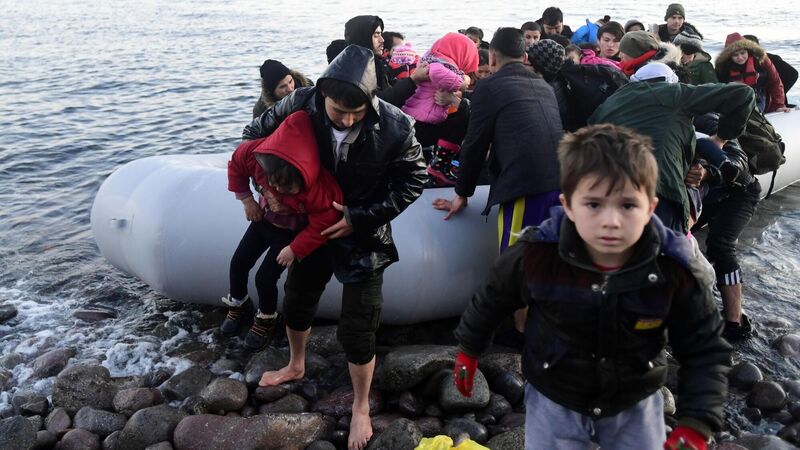Maeve Higgins: Migration is being punished, even as asylum is promised

Migrants clamber ashore on Lesbos after crossing the Aegean sea from Turkey on a dinghy on March 2, 2020. File picture: Michael Varaklas/AP
Try from €1.50 / week
SUBSCRIBE
Migrants clamber ashore on Lesbos after crossing the Aegean sea from Turkey on a dinghy on March 2, 2020. File picture: Michael Varaklas/AP
The criminal case held last week in Lesbos against 24 humanitarians for helping migrants sounded like a joke, but not a funny one.
In court were volunteers with a small Greek NGO, Emergency Response Centre International, a search-and-rescue organisation that has since disbanded, including Seán Binder, a Kerry man and rescue diver.
Already a subscriber? Sign in
You have reached your article limit.
Annual €130 €80
Best value
Monthly €12€6 / month
Introductory offers for new customers. Annual billed once for first year. Renews at €130. Monthly initial discount (first 3 months) billed monthly, then €12 a month. Ts&Cs apply.
CONNECT WITH US TODAY
Be the first to know the latest news and updates
Newsletter
Sign up to the best reads of the week from irishexaminer.com selected just for you.

Select your favourite newsletters and get the best of Irish Examiner delivered to your inbox
Sunday, February 8, 2026 - 5:00 PM
Sunday, February 8, 2026 - 5:00 PM
Sunday, February 8, 2026 - 1:00 PM
© Examiner Echo Group Limited